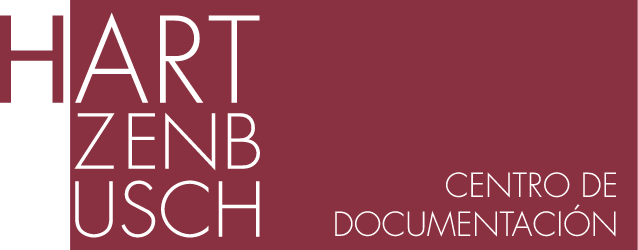RECURSOS
DIDÁCTICOS
PRESS
Following the death of Ferdinand VII in 1833, the freedom of the press decreed in January 1834 encouraged the creation of numerous new periodical publications – in Madrid alone there are 26, to which must be added another 32 in the rest of the country -, most of them with a political vocation, but also some dedicated to literature and the arts. After the Barcelona precedent of The European (1823-1824), El Vapor (1833-1838), La Estrella (1833-1834), La Abeja (1834-1836), El Eco del Comercio (1834-1841) or El Español emerged in Madrid (1835-1837), founded by Andrés Borrego. Manuel María de Santa Ana, administrator of El Diario de Sevilla, founded in Madrid Carta autógrafa (1848), later converted into Correspondencia de España (1853), first Spanish newspaper to be sold on the street and not by subscription.
The Sunday one stands out in particular El Artista (1835-1836), founded by Eugenio de Ochoa, Federico de Madrazo y el conde de Campo Alange. With the support of the Royal Lithographic Establishment, governed by José de Madrazo, The magazine included one or two original lithographed prints as illustrations for poems or articles. Other publications followed in its short wake, such as No me olvides (1837-1838), founded by Jacinto Salas Quiroga, defender of an ideologically moderate romanticism; or the Semanario Pintoresco Español (1836-1857), the great magazine of costumbrismo founded by Ramón Mesonero Romanos and imitated by the fleeting Observatorio Pintoresco (1837) or by El Siglo Pintoresco (1845-1848). El Liceo Artístico y Literario, aparecida en 1838, fue el órgano de expresión de la institución cultural de idéntico título fundada un año antes por José Fernández de la Vega e íntimamente unida a la Casa Real.
It is also worth highlighting other periodical publications, such as the Voz de la Religión (1837-1841), from Barcelona, defender of a conservative romanticism in the line of Chateaubriand, or El Alba (1838-1839), which featured articles in defense of a moderate romanticism. The list can be extended with titles such as those of El Panorama (1838-1841), La Esperanza (1839-1840), Revista de Madrid (1838-1845), politically moderate, or El Entreacto (1839-1840), founded, among others, by Zorrilla. Cabe citar, además, Revista de Teatros (1841-1845), El Iris (1841), El Pensamiento (1841), Revista de España y el Extranjero (1842-1848), Revista Científica y Literaria (1847) and El Laberinto (1843-1845); not forgetting satirical magazines, such as El Guindilla (1842-1843), La Risa (1843-1844) or El Dómine Lucas (1844-1846), nor the religious ones, like El Arpa del Creyente (1842), El Reflejo (1843) or the most established of all, La Censura (1844-1853), of ultra-Catholic tendency.
